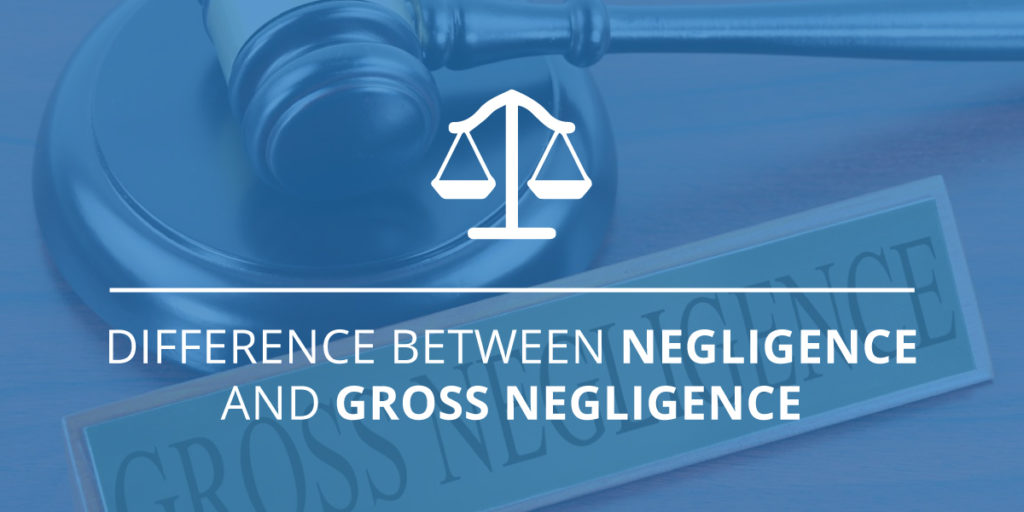
When discussing personal injury law, terms like “negligence” and “gross negligence” pop up quite frequently. Of course, unless you are an attorney, you may not be fully aware of the differences between these two phrases. To make matters a little clearer, let’s take a look at how “negligence” and “gross negligence” are defined under the law:
Understanding Negligence
Negligence is generally defined as the absence of reasonable care, leading to injuries or property damage. The term is most often used to describe careless mistakes or inattentive errors that an ordinary person would not make. Some of the most common examples of negligence include:
- Driving through a stop sign or crosswalk and hitting a pedestrian, causing them to become injured or die
- Failing to put up a “Wet Floor” sign after mopping and causing a customer to slip and injure themselves
- Failing to cook food to the correct temperature and causing a customer to become sick
- Failing to properly restrain or secure a dog, causing a neighbor to get bitten
In cases that involve negligence, the responsible party generally does not mean to injure the other person. However, this lack of intent does not absolve them of blame. They may still be held legally responsible for the consequences of their actions.
Understanding Gross Negligence
Gross negligence is best defined as the careless disregard for the safety of others. You will often find this phrase used in cases where the defendant carries out an action that is likely to cause harm to another person or their property. Some common examples of gross negligence include:
- Drinking excessively, attempting to drive home, and getting into a crash that causes property damage, injury, or death
- Prescribing a patient a medication that their intake form clearly shows they are allergic to and causing them to become sick or die
- Not providing a nursing home patient with food or water for an extended period of time and causing them to become sick or die
- Speeding through a crowded parking lot and causing property damage, injury, or death
In short, when someone is injured, killed, or has their property damaged because of the extreme carelessness of another person, it is generally classified as gross negligence. As with ordinary negligence, there can be stark legal consequences to these irresponsible actions.
How Can These Terms Impact a Personal Injury Case?
Instances of ordinary negligence and gross negligence can both cause serious injuries and even death. However, the particular type of negligence can have a huge bearing on the eventual size of any settlement checks.
In most personal injury cases, you are likely to see compensation awarded for many of the following damages:
- Hospital bills
- Ongoing medical care
- Lost wages
- Loss of future earning capacity
- Loss of enjoyment of life
- Mental anguish
- Pain and suffering
In cases that involve gross negligence, the amount of compensation awarded under each of these categories may increase. Depending on the specific circumstances surrounding the injury, punitive damages may also be awarded.
Punitive damages are designed to punish the offender for their disregard for the safety of others. These damages are levied to deter the defendant from engaging in similar activities in the future. Because they are designed to drive home a message, the total value of punitive damages can be quite high.
How to Prove Negligence or Gross Negligence
For a personal injury lawsuit to be successful, the claimant must prove that the defendant’s negligence was the cause of their injury. To accomplish this feat, they must show that:
- The other party owed them a duty of care
- That duty was breached by the actions or inaction of the other party
- The breach of care was a direct cause of their injuries
- They suffered economic or non-economic damages as a result of the breach of care
Your Las Vegas Personal Injury Experts
The personal injury lawyers here at Cap and Kudler have been helping the people of Las Vegas fight for the compensation they deserve for years. If you have been injured because of the negligence or gross negligence of another party, please do not hesitate to give us a call at (702) 878-8778. We would love to schedule a free consultation to discuss your case in greater detail.
